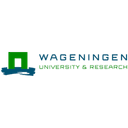This course is part of Chemistry and Technology for Sustainability.
This advanced course focuses on the fundamental principles and practical applications of catalytic conversion processes for biobased feedstocks. Students will explore microbial, biochemical, and chemical conversion routes for transforming biomass into valuable chemicals, materials, and fuels. The course emphasizes the unique challenges of working with biobased feedstocks, including handling elements like O, N, P, S, and water. Topics covered include biocatalyst optimization, reactor design, process efficiency, and comparative analysis of fossil-based versus biobased conversion routes. This course is part of the MicroMasters Program in Chemistry and Technology for Sustainability, designed for professionals seeking to contribute to the transition from fossil-based to biobased economy.
3.8
(12 ratings)
7,715 already enrolled
Instructors:
English
English
What you'll learn
Design efficient conversion processes for biobased feedstocks
Evaluate and optimize homogeneous heterogeneous and biocatalysts
Apply reactor design principles to bioconversion processes
Analyze catalyst performance and process efficiency
Compare fossil-based and biobased conversion routes
Skills you'll gain
This course includes:
PreRecorded video
Graded assignments, Exam
Access on Mobile, Tablet, Desktop
Limited Access access
Shareable certificate
Closed caption
Get a Completion Certificate
Share your certificate with prospective employers and your professional network on LinkedIn.
Created by
Provided by

Top companies offer this course to their employees
Top companies provide this course to enhance their employees' skills, ensuring they excel in handling complex projects and drive organizational success.





There are 5 modules in this course
The course examines catalytic conversion processes for transforming biomass into valuable chemicals and products. Students learn about microbial, biochemical, and chemical conversion routes, focusing on the unique challenges of biobased feedstocks. The curriculum covers catalyst optimization, reactor design, process efficiency, and performance evaluation. Special attention is given to comparing fossil-based and biobased conversion routes, preparing students for the transition to a sustainable bioeconomy.
Introduction to Biobased Conversions
Module 1
Development and Performance of Catalysts
Module 2
Reaction Kinetics in Reactor Design
Module 3
Improving Biobased Conversion Processes
Module 4
Exam
Module 5
Fee Structure
Individual course purchase is not available - to enroll in this course with a certificate, you need to purchase the complete Professional Certificate Course. For enrollment and detailed fee structure, visit the following: Chemistry and Technology for Sustainability
Payment options
Financial Aid
Instructors

15 Courses
Leading Expert in Biobased Chemistry and Sustainable Production
Dr. Harry Bitter serves as Professor and Chair of Biobased Chemistry and Technology at Wageningen University & Research since 2013, where he leads research on sustainable production of chemicals from biomass and biomass-derived feedstocks. After completing his PhD in heterogeneous catalysis at Twente University in 1997, he spent 15 years at Utrecht University developing fundamental understanding of catalyst characteristics and activity. His research combines multiple disciplines including chemistry, catalysis, microbiology, separations and modeling to address biomass conversion challenges. As co-author of over 200 peer-reviewed publications with an h-index of 44 and nearly 7,000 citations, he has established himself as a prominent figure in sustainable chemical production. He currently chairs the Netherlands Institute for Research in Catalysis (NIOK) and serves on the board of the Royal Dutch Chemical Society. His group focuses on TIPTOP chemistry - Turning variable InPut into Tailored OutPut - addressing the challenges of converting variable biomass feedstocks into consistent chemical products. Beyond academia, he contributes to advancing the field through his roles in various research initiatives and his work integrating chemical approaches with computational methods to develop a circular biobased economy.
Leading Expert in Bioprocess Engineering and Microalgae Biorefinery
Dr. Marian H. Vermuë serves as Associate Professor at the Department of Agrotechnology and Food Sciences at Wageningen University & Research, where she specializes in bioprocess engineering and microalgae biorefinery. After completing her MSc in Molecular Sciences and PhD in Bioprocess Engineering at Wageningen University focusing on biocatalysis in non-conventional media, she has established herself as a key researcher in biotechnology and downstream processing. Her current research activities center on microalgal production in closed photobioreactors, harvesting techniques, and biorefinery approaches. She has made significant contributions to developing mild and selective protein extraction methods from microalgae, particularly through innovative techniques like pulsed electric field treatment. Her work emphasizes integrating downstream processing with fermentation design while considering cellular metabolism effects. Through her research at Bioprocess Engineering and AlgaePARC, she continues to advance the economic viability of large-scale microalgae processes by developing multi-product biorefinery approaches and novel harvesting methods such as bio-flocculation. Her expertise spans biotechnology, algae cultivation, bioprocess design, and downstream processing, contributing to both fundamental research and practical applications in sustainable bioprocessing.
Testimonials
Testimonials and success stories are a testament to the quality of this program and its impact on your career and learning journey. Be the first to help others make an informed decision by sharing your review of the course.
Frequently asked questions
Below are some of the most commonly asked questions about this course. We aim to provide clear and concise answers to help you better understand the course content, structure, and any other relevant information. If you have any additional questions or if your question is not listed here, please don't hesitate to reach out to our support team for further assistance.




